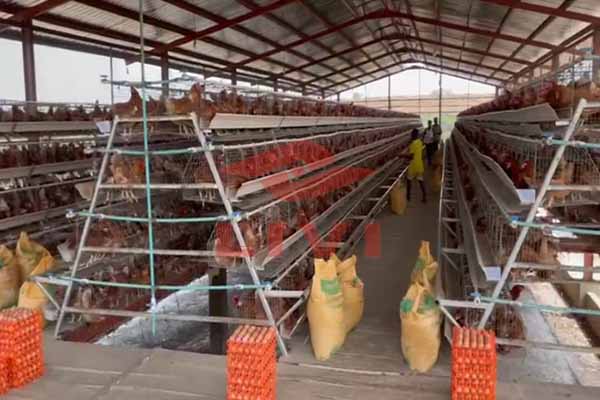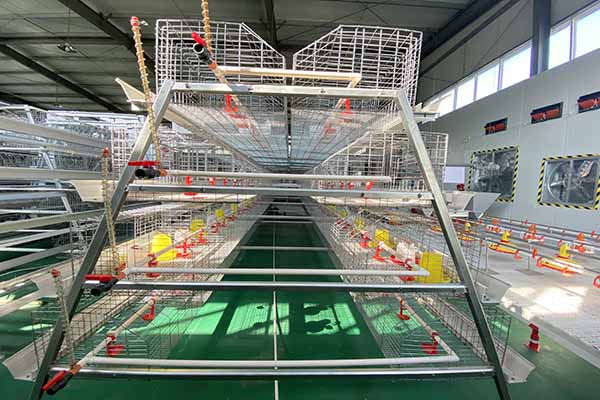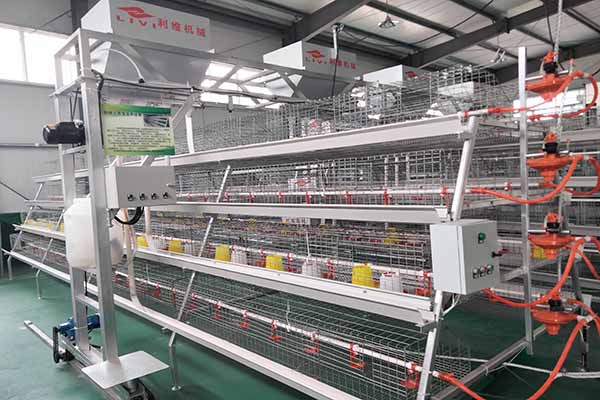Optimizing Chick Brooding Cage Selection: Maximizing Space Utilization for Enhanced Efficiency
The early growth environment of broiler chicks critically influences their health, performance, and overall production efficiency. Selecting the appropriate chick brooding cages plays a pivotal role in creating optimal conditions that balance space efficiency, ventilation, and ease of management. This guide delineates the essential technical considerations in choosing brooding cages, focusing on space utilization, stocking density, airflow, and operational convenience. Special emphasis is placed on the advanced features of the Zhengzhou Livi Machinery A-type brooding battery cage, a solution tailored for both small-scale farms and expansive commercial operations.
1. Key Factors in Brooding Cage Selection
Efficient brooding cage design must harmonize multiple factors:
- Stocking Density: Optimal chick density maximizes animal welfare and growth performance, typically ranging from 12 to 18 chicks per square foot depending on age and breed.
- Space Utilization: Vertical stacking and cage footprint should be optimized to enable higher capacity per square meter without compromising chick comfort.
- Ventilation and Heat Dissipation: Proper airflow diminishes heat stress and respiratory issues, essential in maintaining uniform temperature and humidity.
- Management Convenience: Ease of feed and water distribution, manure removal, and health monitoring reduces labor costs and improves operational efficiency.
2. Comparative Analysis of Cage Height and Capacity Configurations
Cage configurations vary notably by vertical clearance and number of tiers, affecting both airflow and handling:
| Configuration |
Vertical Height (cm) |
Tiers |
Stocking Density (chicks/m²) |
Air Circulation Efficiency |
Management Ease |
| Low Height, Single Tier |
60-75 |
1 |
12-14 |
High |
Excellent |
| Medium Height, Double Tier |
75-90 |
2 |
14-16 |
Moderate |
Good |
| High Height, Triple Tier |
90-110 |
3 |
16-18 |
Lower |
Challenging |
While higher tier systems increase space utilization up to 30% compared to single-tier setups, ventilation tends to decline, demanding integrated design solutions to prevent heat accumulation and ensure animal welfare.
3. Tailored Recommendations for Small and Large Scale Farms
Small-scale operations benefit from simpler, single or double-tier cages offering streamlined management and superior air flow, typically accommodating 12-14 chicks per square meter with cage heights between 60-85 cm.
Large commercial farms require scalable solutions capable of maximizing stocking density while maintaining chick comfort. Triple-tier cages with optimized ventilation channels allow densities up to 18 chicks per square meter, paired with automated feeding and manure removal to reduce labor intensity.
4. Core Technical Advantages of Zhengzhou Livi Machinery’s A-Type Brooding Battery Cage
The A-type brooding battery cage offers a breakthrough in brooder cage technology:
- Modular Design: Enables flexible tier and size configurations, adjusted precisely to spatial constraints and desired stocking densities.
- Enhanced Ventilation: Integrated mesh platforms combined with strategically designed airflow ducts reduce heat stress and moisture build-up.
- Durable Materials: Galvanized steel and corrosion-resistant coatings ensure longevity under harsh farming conditions.
- Efficient Manure Handling: Sloped floors and removable trays enhance sanitation and reduce labor.
- Ergonomic Operations: Simplified feeding and watering systems cut down manual work and improve animal welfare monitoring.
These features collectively lead to an average increase of 12% in chick growth rates and a 15% reduction in mortality, substantiated by field data from various operational farms.
5. Customization and Real-World Implementation Case Studies
Numerous clients report tailored solutions through Zhengzhou Livi’s customizable cages:
- Smallholder Farm in Henan Province: Adopted double-tier A-type cages expanding chick capacity by 35%, improving air circulation and reducing heat-related stress.
- Large-Scale Operation in Shandong Province: Implemented triple-tier cages combined with automated feeding lines, scaling production by 50% while maintaining strict sanitation standards.
6. Practical Tips and Layout Optimization
To maximize efficiency:
- Ensure minimum vertical clearance of 75 cm per tier to facilitate air exchange and reduce thermal stratification.
- Position cages perpendicular to natural airflow direction when possible to augment ventilation.
- Maintain at least 1.2 meters of aisle width for unobstructed feeding and health checks.
- Incorporate adjustable warming equipment adjacent to cages during the first 2 weeks post-hatching.
7. Frequently Asked Questions (FAQ)
Q1: What is the ideal stocking density for A-type brooding cages?
A1: Typically, 14-16 chicks per square meter is optimal, but exact figures vary with age and ventilation quality.
Q2: How frequently should manure trays be cleaned?
A2: Daily removal is recommended during peak brooding stages to reduce ammonia buildup and disease risk.
Q3: Can the cages be customized for specific farm layouts?
A3: Yes, Zhengzhou Livi provides tailor-made configurations to suit spatial limitations and operational preferences.
For professional advice on selecting and configuring your chick brooding cages, Discover the Zhengzhou Livi A-Type Advantage Today – maximize your farm’s productivity with expert-engineered solutions.





